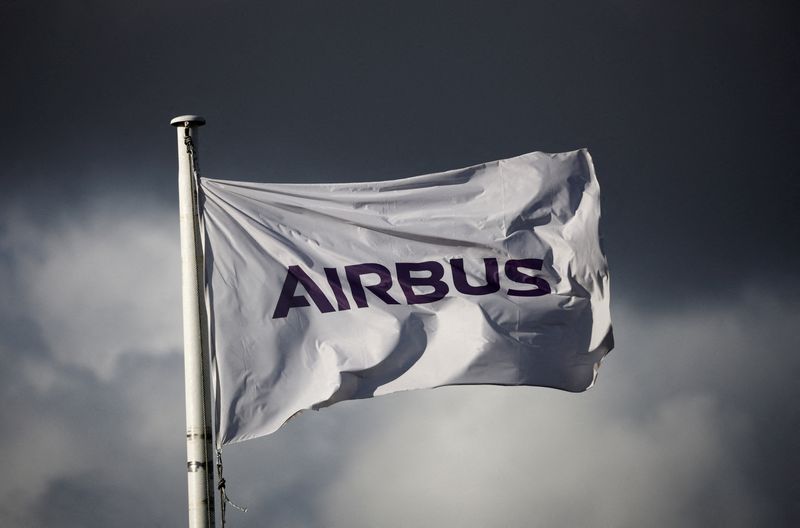By Tim Hepher
PARIS (Reuters) - Airbus has started building a new A320neo-family assembly line in Toulouse to replace an older and less efficient facility and help speed up production from next year.
The move will not lead to a net increase in the number of assembly lines but is part of plans to modernise and speed output of the best-selling A320neo/A321neo family to meet rising demand at a time when aircraft supplies are under pressure.
Last year Airbus added a new production line for its A321neo model at one end of a colossal facility once used to make the double-decker A380 superjumbo, which is no longer being built.
That brought the number of Airbus narrow-body lines in Toulouse to two and the worldwide total to 8. Airbus plans to bring this to 10 by adding capacity at existing plants in the United States and China.
The next task is to switch the original Toulouse A320 line from its current location in the former Concorde assembly hall to a new spot inside the former A380 assembly plant, one of the world's largest industrial buildings.
Building work on the new line is well under way in a bay adjacent to the A321neo line that was opened last year, an industry executive who recently visited the site told Reuters.
An Airbus spokesperson confirmed it had started building the new line and said it would be operational in 2025, with plans to transfer activities progressively from the current facility.
The project continues a partial makeover of the birthplace of the world's biggest airliner, while switching off the lights in a historic hangar once used to make the world's fastest.
Launched 38 years apart, supersonic Concorde and the double-decker A380 entered the record books but were a commercial flop. Both were abandoned due in part to high fuel prices.
Airbus' biggest priority now is to overcome supply chain problems and ramp up production of its best-selling A320neo, a small model responsible for the bulk of the company's profit.

Reuters reported last week that the European jetmaker faces new pressures surrounding its near-term production ramp-up.
Even after the partial redeployment of the A380 plant, there will be space left in the building to add further production lines. Airbus has been using the rest of the semi-deserted factory to repair wing-spar cracks on some existing A380s.